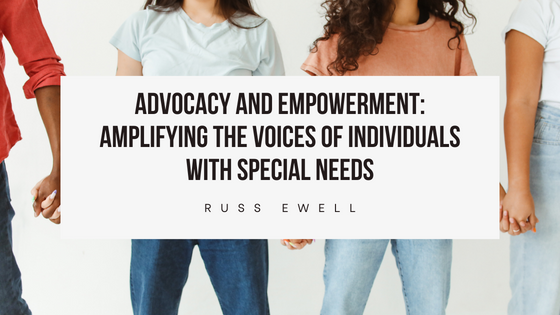In today’s diverse society, it is essential to embrace and support individuals of all abilities. Individuals with special needs deserve equal opportunities, respect, and the chance to have their voices heard. Advocacy and empowerment play a crucial role in amplifying the voices of these unique individuals, enabling them to participate actively in society, access resources, and lead fulfilling lives. The following blog looks at the significance of advocacy and empowerment in ensuring the inclusion and well-being of those with special needs.
Understanding Special Needs
The term “special needs” encompasses a broad range of physical, cognitive, emotional, or developmental differences. These may include conditions such as autism spectrum disorder, Down syndrome, cerebral palsy, learning disabilities, and various other medical conditions. Each individual is unique, and their strengths, challenges, and needs differ significantly.
Advocacy for Inclusion
Advocacy for individuals with special needs involves actively working to ensure they are included in all aspects of life, just like any other member of society. This means advocating for accessible education, healthcare, employment, and recreational opportunities. Additionally, promoting inclusive policies and combating discrimination are essential aspects of this advocacy. By voicing concerns, sharing personal stories, and supporting legislation that protects their rights, advocates can break down barriers and foster an inclusive environment for everyone.
Empowering through Education
Education is a powerful tool for empowerment. For individuals with special needs, access to quality education that addresses their unique learning requirements is vital. Inclusive classrooms and specialized support services can help these individuals reach their full potential. Teachers, parents, and communities must collaborate to ensure that every child is provided with the necessary tools to succeed academically and socially. By empowering these individuals with knowledge and skills, they gain confidence and independence, setting them on a path towards a brighter future.
Promoting Self-Advocacy
Empowerment also comes from within, through self-advocacy. Teaching individuals with special needs to express their thoughts, needs, and desires builds self-confidence and decision-making skills. Encouraging self-advocacy enables them to participate actively in their education and daily lives, fostering a sense of control and autonomy.
Breaking Social Stigmas
Stigmatization and misconceptions surrounding special needs often lead to marginalization and exclusion. Advocacy involves breaking down these stigmas by promoting awareness and empathy. Public campaigns, media representation, and community events are powerful ways to challenge preconceived notions and highlight the abilities and strengths of individuals with special needs.
Supporting Families and Caregivers
The journey of individuals with special needs is closely intertwined with the experiences of their families and caregivers. Advocacy efforts must extend to providing support and resources for these essential stakeholders. Respite services, support groups, and access to information are vital for caregivers, enabling them to better support their loved ones.
Advocacy and empowerment are crucial elements in creating an inclusive society that values and respects individuals with special needs. By amplifying their voices, we can break down barriers, promote understanding, and foster a culture of acceptance. Empowered individuals can then become active contributors to society, enriching our communities with their unique perspectives and abilities. Together, let’s strive to create a world where every individual, regardless of their abilities, is embraced and celebrated for who they are.

